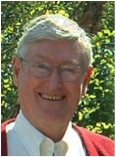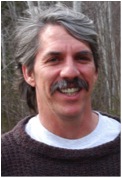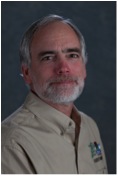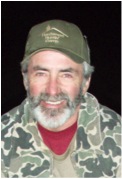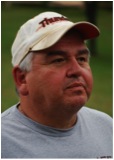
Panelists representing tribal, state and federal perspectives discussed facts and data behind the biological impacts of treaty rights implementation. Discussions stressed that resources have not been negatively impacted by treaty harvests and that subsequent management has improved with the addition of tribal input and cooperative efforts. These points were made through examples of shared inland and Lake Superior fisheries as well as with wildlife.
(Note: Each speaker section includes: photo, biography, speech excerpt, downloadable pdf of full speech, and each Youtube video link.)
Moderator:
|
George Spangler was born in Lassen County, California. George grew up in the mountains, the foothills, the valleys of the great Sacramento River - that's gold country - and learned to hunt and fish in the traditional land of the Yana and Maidu. He graduated in fisheries biology from Humboldt State College in 1964 and studied muskellunge, sea lamprey and whitefish for his master's and doctoral degrees from the University of Toronto. From 1969 to 1978, George was a research scientist with the Ontario Ministry of Natural Resources, Lake Huron Research Unit. His research there focused on the fisheries and the ecology of Great Lakes fishes. In 1978, George joined the faculty at the University of Minnesota, where for the past 30 years he researched and taught courses in population dynamics of fish, Indian treaty rights, and developmental studies and social change. He's now retired in southeastern Minnesota. George and his wife, Kay, wife of 47 years, have reentered small town community life in the Root River Valley where they enjoy gardening, golfing, and fishing. They look forward to broader travels in the next few years.
|
|
|
||
Panelists:
|
Jonathan Gilbert (MS Fish and Wildlife, Michigan State University, Ph.D. Wildlife Ecology, UW-Madison), began with the Great Lakes Indian Fish & Wildlife Commission in 1984. Currently, he is the Commission’s Wildlife Section Leader acting as a technical advisor to tribes with off-reservation treaty rights. Jonathan participated in the early negotiations with the WDNR as part of the Voigt Intertribal Task Force and acted as an expert witness for tribes during the species trials in Voigt. Jonathan has managed harvests of waawaashkeshiwag (deer), makwag (bears) and furbearers by tribes during the past 25 years; with interests in forest carnivores and their role in northern forest ecosystems, particularly gidagaa-biziwag (bobcats), ojiigwag (fishers) and more recently waabizheshiwag (martens).
|
|
|
Michael Staggs has been the Director of the Bureau of Fisheries Management for the Wisconsin Department of Natural Resources (DNR) since 1997. He joined the Department in 1982 and also served as the fish and wildlife statistician in the Bureau of Research, fisheries staff specialist in the Bureau of Fisheries Management and Chief of the Fish Research Section of the Bureau of Research. He holds a BS degree in Zoology from the University of Illinois, and a Master of Science degree in Fisheries Science and Biometry from Cornell University. He has been involved with ceded territory treaty fishing issues since 1985 as a member of the state-tribal technical working group and the Department's treaty fishing litigation team, and as lead negotiator for the current Lake Superior state-tribal fishing agreement.
|
|
|
||
|
John Olson, is the Furbearer Specialist for the Wisconsin Department of Natural Resources. John has been active in wildlife management for over 34 years and has been with the Department since just about biblical times! He began as a field wildlife limited term employee working in Douglas and Bayfield Counties before accepting the position as the Forest Habitat Coordinator for the old time Northwest District. He then transferred his workload to Mercer where he barely survived as a wildlife biologist for 10 years, working specifically with bald eagles, common loons, ospreys and black bears. He then escaped into the Coulee Country as an area wildlife supervisor for 3 years. Eventually, he found Nirvana. Beginning in 1993, he worked with treaty-wildlife and furbearers,. Since then, trapper education and trap research has become a big part of the his effort in Wisconsin. John also works with GLIFWC on furbearer management and research, coordinates tribal declarations for such species as bobcat, fisher, and river otter, and is a long-standing, active member of the Wild Rice Committee. Personally, John describes himself as a “paddling gatherer” - from gardens to grouse, wild rice to elk, muskrats to maple syrup, if it can grow out there, allows an annual harvest, he’ll collect it, and stuff it into a quart jar.
|
|
|
||
|
George Newago is involved in youth work for First American Prevention Center in Red Cliff teaching youth to make healthy decisions and utilize natural resources wisely. George is an experienced netter, spearer, sugarer and moose hunter. He has been active in the exercise of treaty hunting, fishing and gathering rights for many years.
|
|

